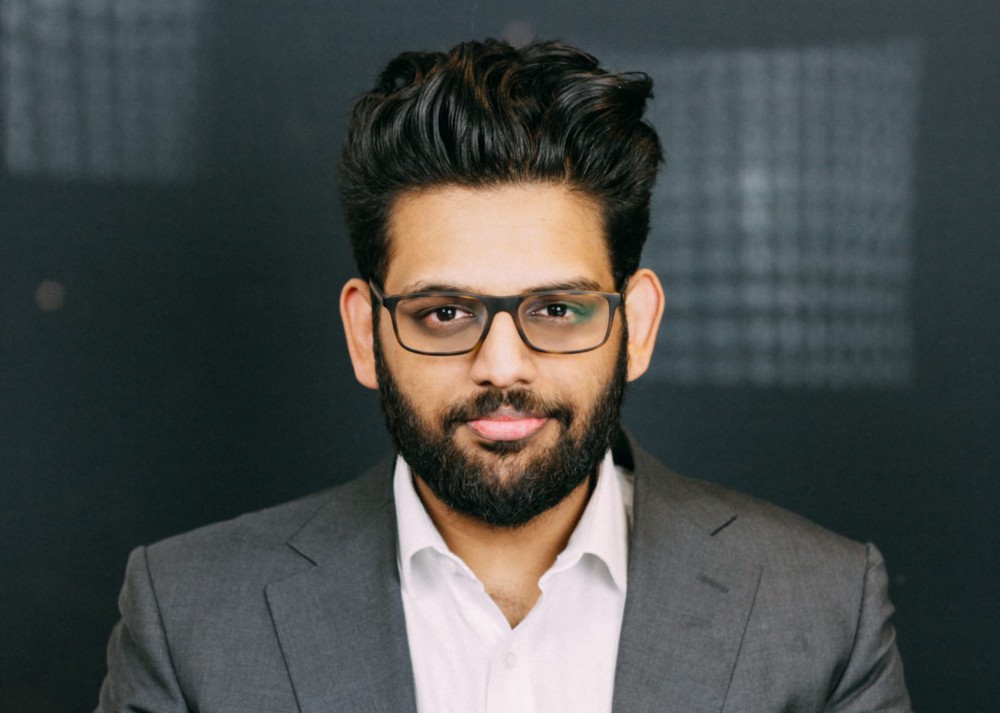I’m excited to launch our Logically app in the U.S. to solve an issue that is so topical in U.S. discourse and politics today. And while our fact checking extends beyond politics, it’s the biggest need in the U.S. for the next several months. We also have many updates and features planned, such as live fact checking during the Presidential debates, that will help people become even more informed and discerning about the “facts” that they are being presented with everyday. Our goal is to mitigate the risk of disinformation and misinformation so that we’ll have a positive impact on the upcoming elections by informing readers and voters to make educated decisions. Voter confidence, regardless of their choice, is paramount.
I had the pleasure of interviewing Lyric Jain. Lyric is a serial entrepreneur and engineer who founded Logically in 2017, after observing the breakdown in public discourse during the 2016 US presidential election, and the Brexit referendum in the UK. He first began identifying opportunities for early interventions during his time at MIT, and is motivated by the impact Logically can deliver through human-machine collaborations to mitigate risks posed by information disorder.
Thank you so much for doing this with us Lyric! Can you please tell us a story about what brought you to this specific career path?
Thanks for having me and of course I’m happy to share my career path with you.
My father was an entrepreneur in India and then the U.K., so I feel like I was exposed early on to the idea of creating and solving for issues in the world. I went on to study engineering and computer science at MIT, and further received my Master of Engineering from Cambridge University. I would have likely waited until my late 20s before embarking on an entrepreneurial journey, however the serendipity of my time and work at MIT, along with the sheer scale of the challenge and potential impact I envisioned for Logically was hard to ignore. The entrepreneurial spirit instilled in me by my family and the support at both universities led me to found Logically.
The idea for Logically came after witnessing the political polarization that now surrounds online news and information dissemination. I saw campaigns and elections using highly targeted and often misleading social media advertising to aid their issues and campaigns. It was clear that the public both needed and wanted access to credible information they could reliably use to inform their decisions.
Ok thank you for that. Can you tell us about your “Big Idea That Might Change The World”?
I founded Logically, an established social enterprise bringing credibility and confidence to news and social discourse in 2017 after seeing a steep rise in toxic news and disinformation during the European Referendum and the 2016 U.S. elections. There was an incredible amount of disparity amongst my friends who were consuming news online and on social media. It inspired me to try to help solve this societal issue and began assembling the team and idea that would become Logically. Logically takes news analysis many steps further than any existing news aggregator today, by providing only credible sources with fact-checked information, and analysis that provides context, reasoning and objectivity.
Fundamental to our mission is improving civic discourse and restoring digital trust. We provide only credible sources, and objective analysis of the news content that’s available online. Through a combination of cutting-edge AI-driven models and insights, and human-centric fact checking operations, Logically empowers users to take a more holistic approach to their news consumption habits.
How do you think this will change the world?
Logically is unique in that we are a social enterprise that leverages artificial and human intelligence to credibly curate news and social discourse today. We work with government bodies and social platforms in multiple countries today, as well as provide consumer tools that solve for the issue of misinformation. Although our work is data intensive, we are extremely privacy conscious and do not monetize our users’ data. We instead focus on empowering users by aggregating, analyzing and contextualizing publicly available information.
Today, globally, we are more connected than ever and are able to freely exchange ideas and opinions. Although this increase in accessibility is hugely valuable, most of us are not equipped with adequate media literacy and critical thinking skills to identify poorly evidenced claims and distinguish between facts and opinions. The incentives of our attention economy also exacerbate this as we’re so divided by the multitude of sources that we’ve created. We only hear what we want in our own eco-chambers and support what aligns to our beliefs. Increasingly, we also have to contend with geo-politically motivated domestic and nation state actors who are seeking to divide us and further their own agendas. Logically enables our users to cut out toxic commentary, fact-check claims on-demand and access credible, contextualized news.
Keeping “Black Mirror” and the “Law of Unintended Consequences” in mind, can you see any potential drawbacks about this idea that people should think more deeply about?
Our biggest challenge is the sheer volume, and sources, of misinformation that exist today. Misinformation is most damaging when it first comes out of concentrated, niche groups into the wider public. If we have whistleblowers in that initial stage, exposed to this information as it becomes more mainstream, we effectively have a chance to respond very soon to what’s still an emerging threat, in the pre-viral stages. And while it puts some of the burden of news literacy directly on the end user, we have seen that these fact-based readers exist at a fairly large scale, and they want to stop the proliferation of disinformation.
The politicization of information disorder has also made our work in this space challenging. We view this as an apolitical challenge that is swiftly turning into a national security and public safety threat — and warrants a response that reflects this.
How to you think Logically will impact the upcoming elections?
I’m excited to launch our Logically app in the U.S. to solve an issue that is so topical in U.S. discourse and politics today. And while our fact checking extends beyond politics, it’s the biggest need in the U.S. for the next several months. We also have many updates and features planned, such as live fact checking during the Presidential debates, that will help people become even more informed and discerning about the “facts” that they are being presented with everyday.
Our goal is to mitigate the risk of disinformation and misinformation so that we’ll have a positive impact on the upcoming elections by informing readers and voters to make educated decisions. Voter confidence, regardless of their choice, is paramount.
What are three things I wish someone told me before I became CEO and why? Please share a story or example for each.
· My biggest advice for any entrepreneur is — make sure you want to do it. Being an entrepreneur has been glamorized. Don’t get caught up in the hype and get deterred by the wrong things, because it is incredibly rewarding, but it takes a tremendous amount of time and energy. It requires perseverance and being in the right stage of life to ensure you can dedicate the time needed to be successful.
· Have people around you that will support you but might disagree with you. Some of the earliest discussions I had about Logically both internally and externally have influenced our journey. We’ve remained steadfast in the pursuit of our mission and will continue to do so, however the vision for our company and products need to respond to our customers as we obsess over their needs and wants.
· It’s important to know what your specific mission is. Hard days will outnumber easy days and the days you will “win”. It’s easy to get demotivated unless you’re driven by a mission. Keep your eye on your North star.
You are a person of great influence. If you could start a movement that would bring the most amount of good to the most amount of people, what would that be? You never know what your idea can trigger.
As individuals and organizations, we need to make important decisions with imperfect information. Given the sheer volume of information and velocity of daily updates, our sense-making abilities are incredibly stretched especially in an environment where adversaries are seeking to distract, divide and disinform. We want to enable a movement through Logically, by working with governments, platforms and consumers to provide solutions to these challenges, contextualizing reliable information and mitigating risks before they proliferate. We’ve successfully started doing this in the U.K. and India and are very optimistic about our ability to be a positive influence in the U.S. and around the world.
How can our readers follow you on social media?
Twitter: @LogicallyAI
For more information, please visit Logically.ai.


